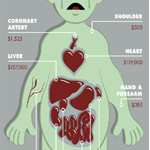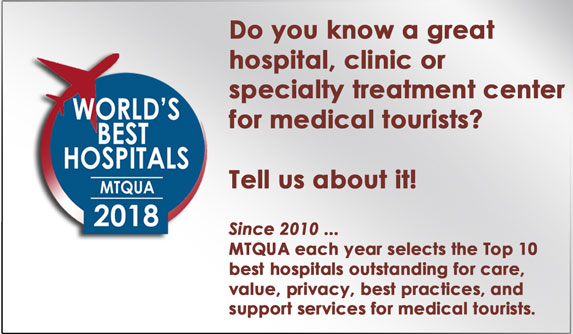 Selling one’s organs is nothing but controversial in most circles of health care, including medical tourism.
Selling one’s organs is nothing but controversial in most circles of health care, including medical tourism.
Yet arguments for and against the sale of organs for transplantation are made by distinguished medical leaders. As recently as 2009, the U.S. Congress considered – but failed to pass – a law that would allow payment to certain organ donors. Selling one’s organs remains illegal in the United States and most countries.
Last year, in the U.K., one of the world’s leading transplant surgeons, Dr. Nadey Hakim, and John Harris, an ethicist at the University of Manchester, both encouraged having a debate about legalizing the sale of organs, believing it to be long overdue. Dr. Hakim hopes legalizing organ donor payments may reduce the size of the black market in organ donation. He has seen the effects of the black market in patients so desperate to have a transplant operation that they travel abroad for an organ.
Popular Science says there are many organs one can theoretically do without, or for which there is a backup. Most of us can spare a kidney, a portion of our liver, a lung, some intestines, and an eyeball, and still live a long life. Surgeries to extract these organs are not trivial, and must be done only in top hospitals by experienced organ transplant teams.
There is a significant black market in organ donation. According to the World Heath Organization, in India, a kidney sells for around $20,000. In China, buyers will pay $40,000 or more. A good, healthy kidney from Israel goes for $160,000. These are not the prices that the organ donor gets. If sold on the black market, the organ broker takes his commission plus the costs he pays for travel, the surgeon, medical supplies and “tips”. A kidney donor may be left with $1,000 to $10,000.
Related articles
The shortage of organs for transplant continues to grow, despite years of work to get more donors on board. A survey conducted by the NPR-Thomson Reuters Health Poll finds Americans support compensation for organ donors.

Image source

 >
>
Pingback: Organ donors should get paid: survey · MTQUA | Medical tourism quality, safety and patient care best practice.